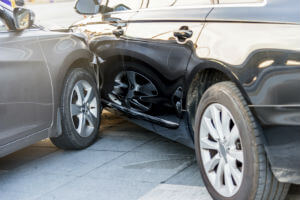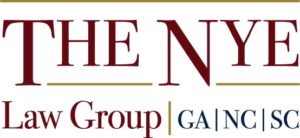
Right-of-way laws play an important role in keeping Georgia’s roads safe. These laws determine when a driver has the right to make a traffic maneuver, such as changing lanes, making a turn or entering an intersection.
If you are injured in a traffic collision and believe you had the right of way over the other driver, contact an experienced Savannah auto accident lawyer at the Nye Law Group. We will review your claim to help you determine if the other driver was at fault for your accident and owes you compensation suffering and loss.
You can lower your risk of a car accident by reviewing Georgia’s right-of-way laws to make sure you clearly understand them and know how to apply them the next time you drive.
Vehicles Approaching or Entering an Intersection
According to Georgia’s intersection traffic laws, if two vehicles approach an intersection from different directions at approximately the same time, the car on the right has the right-of-way.
However, if a driver is on a highway that ends at the intersection, he or she will yield to the other driver whether the other driver is on the right or left.
If you and the other driver approach an intersection with a broken traffic light, both drivers are required to stop as if the traffic light works.
VEHICLES MAKING LEFT TURNS
If you want to make a left turn into an alley, private road or driveway, you must yield the right-of-way to any vehicle approaching from the opposite direction or approaching so close that it constitutes an immediate hazard, according to the regulations for vehicle turns in Georgia.
STOP SIGNS
You have to stop at every stop sign unless directed not to by a police officer. You are required to come to a stop:
- At the clearly marked stop line
- Before the crosswalk if there is no stop line
- At the point closest to the intersection where you have a view of oncoming traffic, if there is no crosswalk
Once you stop at a stop sign, you must yield to any vehicle in the intersection. You are also required to yield to any vehicle that is approaching from another roadway so closely that it is an immediate hazard when you attempt to cross the intersection.
YIELD SIGNS
When you approach a yield sign, you should slow down to a reasonable speed for the conditions. If you have to stop for safety you are required to stop at the clearly marked stop line.
If there is no stop line, you need to stop before entering the crosswalk. If there is no crosswalk, you need to stop at the point nearest to the intersecting roadway where you can see approaching traffic before entering the intersection.
Once you stop, you are required to yield the right-of-way to any vehicles in the intersection or those that are approaching and constitute an immediate hazard when you are moving through the intersection.
If you are involved in an accident where you drove through a yield sign without stopping, you will be considered to be in violation of right-of-way laws unless you prove otherwise.
ENTERING AND CROSSING ROADS
If you are entering or crossing a road from anywhere other than another roadway, you must yield to any and all vehicles that are approaching.
EMERGENCY VEHICLES
You have to yield the right-of-way to any emergency vehicles or those that belong to a federal, state or local law enforcement agency and make use of audible and visual signals.
You are also required to move your vehicle to a position parallel to and as close as possible to the right side or curb of the roadway of any intersection. You must come to a stop and remain there until the vehicle has passed, unless you are otherwise directed by a law enforcement officer.
YIELDING TO HIGHWAY CONSTRUCTION
You are required to yield to any authorized vehicle or pedestrian who is engaged in construction or maintenance on a highway, as indicated by official traffic control devices, according to Section 40-6-75 of O.C.G.A.
FUNERAL PROCESSIONS
A funeral procession is defined as an array of vehicles where the lead vehicle has a sign, pennant, flag or insignia created by a funeral home indicating a funeral procession. A funeral procession could also be defined as a procession of cars led by state or local law enforcement vehicles with each vehicle’s headlights on.
These arrays of vehicles have the right-of-way with the following exceptions:
- Funeral processions have to yield when approached by an authorized emergency vehicle or law enforcement vehicle that gives an audible or visual signal
- Processions must yield the right-of-way when directed by law enforcement
You cannot interrupt a funeral procession unless authorized to do so by a traffic officer. It is also illegal to turn on your headlights to join the procession and secure the benefit of the right-of-way.
Violating this law is a misdemeanor and carries a fine of $100.
RIGHT-OF-WAY FOR PEDESTRIANS
Pedestrians have the right-of-way in a crosswalk when they are on the half of the roadway upon which a vehicle is approaching. Pedestrians also have the right-of-way when they are within one lane of the half of the road upon which the vehicle is traveling or onto which it is turning.
The law also says that all blind pedestrians who are carrying a white cane or stick that is white tipped with red or are accompanied by a guide dog have the right-of-way, regardless of what type of vehicle is approaching.
However, pedestrians do not have the right-of-way when they suddenly leave a curb or safe place and walk or run into the path of a vehicle when it is impractical for the driver to yield.
Pedestrians who cross the street at any place other than a marked crosswalk do not have the right-of-way. Pedestrians also do not have the right-of-way when attempting to cross at a place where there is a pedestrian tunnel or overhead pedestrian crossing.
CALL THE NYE LAW GROUP IF YOU WERE INJURED IN A TRAFFIC ACCIDENT
Have you been injured or lost a loved one in an accident where another driver violated Georgia right-of-way laws?
You may be able to recover compensation for your medical bills, lost wages, and pain and suffering. The Savannah auto accident lawyers at the Nye Law Group will thoroughly investigate your claim to build a strong case that gives you a good chance of success.
Call 855-856-4212 or complete our Free Case Evaluation form today.





